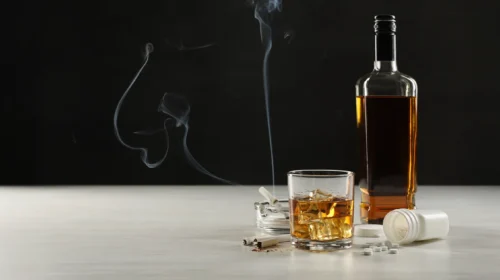Benzodiazepines (benzos) are a sedative class of prescription drugs commonly used for anxiety and sleep disorders. The most common types of benzos include diazepam (Valium®), alprazolam (Xanax®), and clonazepam (Klonopin®). Benzodiazepine addiction is a leading cause of prescription-related overdose year after year. The Centers for Disease Control and Prevention (CDC) reports that between 2019 and 2020, 31,377 benzodiazepine overdose emergency room visits were identified, including 15,547 in 2019 and 15,830 in 2020.
The agency also reports that benzos were involved in nearly 7,000 overdose deaths in 23 states from January 2019–June 2020, representing 17 percent of all drug overdose deaths and that illicit and prescription benzo-related deaths increased 520 percent and 22 percent, respectively, from Q2 2019 to Q2 2020. One of the tell-tale signs of benzodiazepine addiction that can lead to overdose is the physical and psychological withdrawal symptoms that often accompany improper or excessive use.
Benzodiazepine withdrawal can be extremely dangerous and should be treated by experienced and qualified medical professionals when addiction is present.
Common Benzo Withdrawal Symptoms
The scope and severity of your benzo withdrawal symptoms will vary based on how long and how much you’ve been using benzos. More moderate benzo withdrawal symptoms include, but are not limited to:
- Headache
- Flu-Like Symptoms
- Changes in Body Temperature
- Stomach Issues
More dangerous benzodiazepine withdrawal symptoms may include sleep disturbance, irritability, increased tension and anxiety, panic attacks, hand tremors, sweating, difficulty in concentration, dry heaving and nausea, some weight loss, palpitations, headache, and muscular pain. If you or your loved one are experiencing these or any other dangerous benzo withdrawal symptoms, it’s imperative that you get help from a qualified expert so they can help you overcome your dependency and any co-occurring health issues you might be experiencing.
Benzo Detox and Withdrawal Treatment
Minor to moderate benzo withdrawal may be able to be treated by your prescribing physician. If the symptoms aren’t life-threatening or debilitating, you may be able to simply taper off benzos with no long-term effects or damage. When it gets to the point of addiction, however, benzodiazepine withdrawal can be more dangerous and require medically supervised detox. The benzo detox timeline can vary, but it often takes place over several days to a week in an inpatient facility. During the process, doctors and nurses who are familiar with the Benzo withdrawal cycle can help you overcome the worst of your acute symptoms. Detox for Benzos or any other kind of drug withdrawal is generally covered under your private health insurance and should be followed up by behavioral to get to the root of the anxiety disorder for which you or your loved one started taking pills in the first place.
You don’t have to let benzo withdrawal keep you from getting the help you need or living your life. Recovery Unplugged offers benzo detox at our facilities in Lake Worth, FL; Austin, TX; and Nashville, TN. We offer residential and outpatient rehab as well and are in-network with most major insurance companies. Contact us today to get the help you need.

























